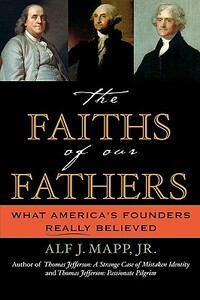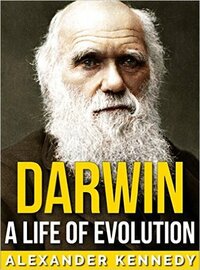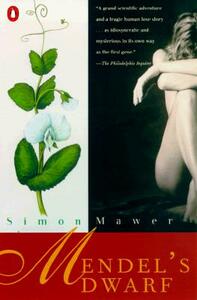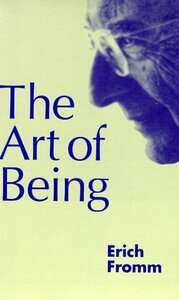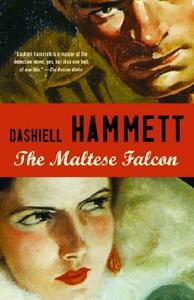Take a photo of a barcode or cover
kevin_shepherd's Reviews (563)
so there's Crow's Woods, The Kingdom, Buttonfolk, Buglings, Woodlanders, The Shadows, Laamia Trees, The Gate Key, The Gate Tree, Haloran, Curly Bill, Pettibone, The Vespertine, Tamalane, The Barrowlands, Owlrider Clans, Whining Moss, Mousefoot Tribes, Tupperton, Laamia Berries, Morphic Fields, Apelings, Mount Larkin, The Saltless Sea, Willow Women, Baron Tick, Mikken, The Vale of Isobel, The Great Accord, Buttonton, The Outlands, Harker's Drop, Walt, Nate, Tabitha, Ten Men, The Barrowood, The Giant Soldiers, Twirken's Beard, Jeff...
AAAAAAARRRRRGGGHH!!
The artwork is fantastic, but the plot line seemed just a tad convoluted. I feel like I would have enjoyed the story more were it set in a less complicated landscape. As it is, it's as though Harry Potter joined forces with a hobbit on a quest to Oz. Not that that is a horrible thing, it's just a lot to remember.
AAAAAAARRRRRGGGHH!!
The artwork is fantastic, but the plot line seemed just a tad convoluted. I feel like I would have enjoyed the story more were it set in a less complicated landscape. As it is, it's as though Harry Potter joined forces with a hobbit on a quest to Oz. Not that that is a horrible thing, it's just a lot to remember.
While no author is completely free of bias, Alf Mapp's leanings are unapologetically clear. In most cases, his conclusions are supported by valid but carefully selected snippets of correspondence, journals and speeches. In other instances, his essay on Benjamin Franklin for example, the database is more vague.
I also found it oddly convenient that the author elected to include rather obscure statesmen like Haym Salomon and Charles Carroll and ignored the likes of Thomas Paine and Ethan Allen.
On the influence of the King James version of the bible, Mapp writes, "The modern translations are not so dauntingly minatory as the one with which [George Washington] was familiar. But if he had not been accustomed to reading the King James version, his own prose would have lacked the grandeur that it sometimes attained when echoing that great masterpiece." ~ hmmm...
All that being said, Mapp's conclusions aren't necessarily wrong. There are, after all, over two centuries between the colonial revolution and the author's publication. In many cases the only evidence of religious conviction (or lack there-of) is circumstantial, and Mapp does a good job of putting all his ducks in a row. Still, there are several relevant quotes that didn't make the cut that could have given some of the essays more balance.
I also found it oddly convenient that the author elected to include rather obscure statesmen like Haym Salomon and Charles Carroll and ignored the likes of Thomas Paine and Ethan Allen.
On the influence of the King James version of the bible, Mapp writes, "The modern translations are not so dauntingly minatory as the one with which [George Washington] was familiar. But if he had not been accustomed to reading the King James version, his own prose would have lacked the grandeur that it sometimes attained when echoing that great masterpiece." ~ hmmm...
All that being said, Mapp's conclusions aren't necessarily wrong. There are, after all, over two centuries between the colonial revolution and the author's publication. In many cases the only evidence of religious conviction (or lack there-of) is circumstantial, and Mapp does a good job of putting all his ducks in a row. Still, there are several relevant quotes that didn't make the cut that could have given some of the essays more balance.
"If I had to live my life again, I would have made a rule to read some poetry and listen to some music at least once every week... The loss of these tastes is a loss of happiness" ~Charles Darwin
Alexander Kennedy's biography on the life and theories of Charles Darwin is but one in a series of mass marketed bios, each featuring a famous intellectual. Others in the series include Albert Einstein, Ben Franklin, Sir Issac Newton, and Thomas Edison.
Kennedy's compilation is gleaned from readily available sources and is, by design, concise and readable. There are a few questionable references and some notable incidents in Darwin's life that are presented without context, like his mistreatment of the family dog when Darwin was a small child, or Darwin's youthful propensity to invent stories (something common to almost every child with a healthy and active imagination).
All-in-all, this is a mildly informative introduction to one of the greatest and most controversial minds in human history. Most of the significant highlights of Darwin’s life are here, sans many of the pertinent details.
Alexander Kennedy's biography on the life and theories of Charles Darwin is but one in a series of mass marketed bios, each featuring a famous intellectual. Others in the series include Albert Einstein, Ben Franklin, Sir Issac Newton, and Thomas Edison.
Kennedy's compilation is gleaned from readily available sources and is, by design, concise and readable. There are a few questionable references and some notable incidents in Darwin's life that are presented without context, like his mistreatment of the family dog when Darwin was a small child, or Darwin's youthful propensity to invent stories (something common to almost every child with a healthy and active imagination).
All-in-all, this is a mildly informative introduction to one of the greatest and most controversial minds in human history. Most of the significant highlights of Darwin’s life are here, sans many of the pertinent details.
After decades of trans-generational/trans-galactic migration, the command structure of the starship ‘Vanguard’ has seriously devolved. With the original crew long since dead and gone, their descendants have slowly usurped science and reason, filling the widening gaps in their knowledge base with dogmatic claptrap. In this Heinlein universe the priests are now the “scientists” and subjects like math and astrophysics are heretical and blasphemous.
This is vintage Heinlein (1941). I hesitate to call it a ‘hidden gem’ because just about everything R.A.H. wrote is gem caliber and often slightly obscure; ‘under appreciated classic’ seems more applicable.
This is vintage Heinlein (1941). I hesitate to call it a ‘hidden gem’ because just about everything R.A.H. wrote is gem caliber and often slightly obscure; ‘under appreciated classic’ seems more applicable.
“...an extraordinary thing about fiction is that it may reveal truths that a pursuit of facts can never unearth.” ~Simon Mawer, 1998
A witty, philosophical panegyric to the genius of Gregor Mendel. This is ‘Beauty and the Beast’ for the rest of us: we of the royal order of rationalists and science geeks. Mawer writes with the heart of a novelist and the mind of a geneticist. His detailed accounting of Mendel’s experiments will no doubt dissuade some potential readers, but there’s nothing here that an inquisitive layperson cannot comprehend - and learning, after all, is half the fun!
A witty, philosophical panegyric to the genius of Gregor Mendel. This is ‘Beauty and the Beast’ for the rest of us: we of the royal order of rationalists and science geeks. Mawer writes with the heart of a novelist and the mind of a geneticist. His detailed accounting of Mendel’s experiments will no doubt dissuade some potential readers, but there’s nothing here that an inquisitive layperson cannot comprehend - and learning, after all, is half the fun!
Fromm defines “Being” as a mode of existence (MoE) where an individual's focus is on growing, loving, and advancing toward self-realization. In contrast, “Having” refers to a state where an individual relates to the world, including his occupation and his relationships with other people, in an acquisitive and controlling manner.
In Fromm’s view, there is an existential scale where “being” resides at one end and “having” resides at the other. At the one extreme are the altruists (Mahatma Gandhi, Frans de Waal, etc.) and at the other extreme sit the narcissists (Benito Mussolini, Donald Trump, etc.). The rest of us fall somewhere in between.
The State of Having/The Idolization and Hoarding of Wealth
When Fromm states, “The most detestable, dishonest, unscrupulous and stupid man can be brought to honor with money,” he echoes Marx…
“I am ugly, but I can buy for myself the most beautiful of women. Therefore I am not ugly, for the effect of ugliness - its deterrent power - is nullified by money. I, in my character as an individual, am lame, but money furnishes me with twenty-four feet. Therefore I am not lame. I am bad, dishonest, unscrupulous, stupid; but money is honoured (sic), and therefore so is its possessor. Money is the supreme good, therefore its possessor is good. Money, besides, saves me the trouble of being dishonest: I am therefore presumed honest. I am stupid, but money is the real mind…” ~Karl Marx
So, how do we move ourselves toward a better, more balanced state of being? I am so glad you asked! The first step, according to the book of Fromm, is seeing ourselves (and those in our sphere of awareness) for what we really are.
“…we are influenced by the idea that increased schooling is commensurate with increased intellectual and artistic activity, but this is by no means so. Our education is not conducive to increased thinking or the development of active imagination. The average man today thinks very little for himself. He remembers data as presented by the schools and the mass media. He knows practically nothing of what he knows by his own observing or thinking… nor does modern man, including the educated groups, think about religious, philosophical or even political problems. He ordinarily adopts one or the other of the many clichés offered him by political or religious books or speakers, but the conclusions are not arrived at as the result of active and penetrating thinking of his own. He chooses the cliché that appeals most to his own character and social class”
Once we acknowledge that many (most? all?) of our judgements and perceptions are not deduced from a critical analysis of our own doing, we can start to shift ourselves from assembly-line automatons to thinking, living, human beings.
The simple message to us all:
We have the potential to be so much more than what we are. Happiness is not something to be pursued. It is not a commodity obtained by material abundance or the domination of nature. Happiness is simply a state of being. It is where we are when we move beyond the paradigm of “I am what I have,” and come to know “I am what I am.”
In Fromm’s view, there is an existential scale where “being” resides at one end and “having” resides at the other. At the one extreme are the altruists (Mahatma Gandhi, Frans de Waal, etc.) and at the other extreme sit the narcissists (Benito Mussolini, Donald Trump, etc.). The rest of us fall somewhere in between.
The State of Having/The Idolization and Hoarding of Wealth
When Fromm states, “The most detestable, dishonest, unscrupulous and stupid man can be brought to honor with money,” he echoes Marx…
“I am ugly, but I can buy for myself the most beautiful of women. Therefore I am not ugly, for the effect of ugliness - its deterrent power - is nullified by money. I, in my character as an individual, am lame, but money furnishes me with twenty-four feet. Therefore I am not lame. I am bad, dishonest, unscrupulous, stupid; but money is honoured (sic), and therefore so is its possessor. Money is the supreme good, therefore its possessor is good. Money, besides, saves me the trouble of being dishonest: I am therefore presumed honest. I am stupid, but money is the real mind…” ~Karl Marx
So, how do we move ourselves toward a better, more balanced state of being? I am so glad you asked! The first step, according to the book of Fromm, is seeing ourselves (and those in our sphere of awareness) for what we really are.
“…we are influenced by the idea that increased schooling is commensurate with increased intellectual and artistic activity, but this is by no means so. Our education is not conducive to increased thinking or the development of active imagination. The average man today thinks very little for himself. He remembers data as presented by the schools and the mass media. He knows practically nothing of what he knows by his own observing or thinking… nor does modern man, including the educated groups, think about religious, philosophical or even political problems. He ordinarily adopts one or the other of the many clichés offered him by political or religious books or speakers, but the conclusions are not arrived at as the result of active and penetrating thinking of his own. He chooses the cliché that appeals most to his own character and social class”
Once we acknowledge that many (most? all?) of our judgements and perceptions are not deduced from a critical analysis of our own doing, we can start to shift ourselves from assembly-line automatons to thinking, living, human beings.
The simple message to us all:
We have the potential to be so much more than what we are. Happiness is not something to be pursued. It is not a commodity obtained by material abundance or the domination of nature. Happiness is simply a state of being. It is where we are when we move beyond the paradigm of “I am what I have,” and come to know “I am what I am.”
“Many and strange are the universes that drift like bubbles in the foam upon the River of Time.” (pg 219)
A fourteen piece anthology of older, slightly obscure material. This is a nice sampling of Clarke’s short-story prowess. Vintage science fiction; old nerd nirvana.
A fourteen piece anthology of older, slightly obscure material. This is a nice sampling of Clarke’s short-story prowess. Vintage science fiction; old nerd nirvana.
bour·geoi·sie: /ˌbo͝orZHwäˈzē/ noun the capitalist class who own most of society's wealth and means of production.
pro·le·tar·i·at: /ˌprōləˈterēət/ noun workers or working-class people, regarded collectively.
Although I needed no persuasion to conclude that capitalism is fertile ground for the corruption of the bourgeoisie and the exploitation of the proletariat, Karl did not sell me on revolutionary socialism as the answer to all of our woes.
On the other hand, Marx isn’t the heinous, horned dastard that Joseph McCarthy and Ronald Reagan would have us believe. Unlike so many of those around me, I needed to see this thing for myself before I could condemn its deficiencies (or praise its virtues).
“The philosophers have only interpreted the world in various ways; the point, however, is to change it.” ~KM
pro·le·tar·i·at: /ˌprōləˈterēət/ noun workers or working-class people, regarded collectively.
Although I needed no persuasion to conclude that capitalism is fertile ground for the corruption of the bourgeoisie and the exploitation of the proletariat, Karl did not sell me on revolutionary socialism as the answer to all of our woes.
On the other hand, Marx isn’t the heinous, horned dastard that Joseph McCarthy and Ronald Reagan would have us believe. Unlike so many of those around me, I needed to see this thing for myself before I could condemn its deficiencies (or praise its virtues).
“The philosophers have only interpreted the world in various ways; the point, however, is to change it.” ~KM
How f-ing awesome would it be to have Rachel Carson as your doting aunt? -and to have her introduce you to the tide pools of Maine? -and the forests of New England? -and the birds of North America? Roger, you are one fortunate sonofabitch.
“I couldn't be fonder of you if you were my own son. But, well, if you lose a son, it’s possible to get another. There's only one Maltese Falcon.”
If Sam Spade wrote reviews...
I was all set to motor back to my flop and squirt out a few lines while everything was still fresh in my melon. But just then I heard a yammering coming from the rumble seat that was making my ears blister. I leaned back to where Brigid O'Shaughnessy had planted herself and shoved my roscoe in her button.
“Listen sister,” I said, “Shut your yap!”
I tell ya’ you can’t trust a dame. All I asked was for her to keep her mitts outta’ my marbles long enough for me to hurry home and hash out a few words for the dailies, but the broad just couldn’t stop flapping her jaws...
...okay, maybe Sam Spade wouldn’t (shouldn’t?) write reviews.
I enjoy reading Dashiel Hammett, partly because of Humphrey Bogart but also because Hammett wrote his protagonist with machismo instead of misogyny. Yes Sam Spade is a chauvinist, but he’s also a pretty good egg.
If Sam Spade wrote reviews...
I was all set to motor back to my flop and squirt out a few lines while everything was still fresh in my melon. But just then I heard a yammering coming from the rumble seat that was making my ears blister. I leaned back to where Brigid O'Shaughnessy had planted herself and shoved my roscoe in her button.
“Listen sister,” I said, “Shut your yap!”
I tell ya’ you can’t trust a dame. All I asked was for her to keep her mitts outta’ my marbles long enough for me to hurry home and hash out a few words for the dailies, but the broad just couldn’t stop flapping her jaws...
...okay, maybe Sam Spade wouldn’t (shouldn’t?) write reviews.
I enjoy reading Dashiel Hammett, partly because of Humphrey Bogart but also because Hammett wrote his protagonist with machismo instead of misogyny. Yes Sam Spade is a chauvinist, but he’s also a pretty good egg.

